TAJI, Iraq - Pennsylvania Army National Guard Soldiers staffing Camp Taji's main medical clinic are prepared to treat the worst of battlefield injuries but hope the bulk of their cases continues to be sprained ankles and upset stomachs. Soldiers of Company C "Charlie Med," 328th Brigade Support Battalion, 56th Stryker Brigade Combat Team, operate the facility which provides basic healthcare to the thousands of Soldiers and civilians on the post which is located north of Baghdad.
"All walks of life come in here, said Sgt. 1st Class Jeremy Strathmeyer of Lititz, Pa., the clinic's noncommissioned officer in charge. "We treat anything from a Hesco barrier getting dropped on someone's foot to gunshot wounds. We've got the only Guard [facility] and we're the highest level of care on the FOB [forward operating base]."
The clinic's lab workers can do urine analysis and blood counts. Tests that can't be performed at the clinic are sent to a combat support hospital in Baghdad. The medical clinic supports about 10,000 Soldiers and up to another 12,000 civilians at Taji.
Strathmeyer, a medic who has been with Co. C for 10 years, said there are "a lot of different working pieces" to the facility. He explained that the level-two care clinic operates out of three buildings and provides dental care, radiology, pharmacy and physical therapy. Level one care is medical attention provided in the field and at battalion aid stations. The level two clinic here can be thought of as the step between field care and the Combat Support Hospital.
"We run a full pharmacy. We've written over 9,000 prescriptions since February," Strathmeyer said.
The 56th SBCT arrived in Iraq in late January and will be deployed through late summer. The BSB's Company C is headquartered in Lancaster, Pa.
Strathmeyer, a York, Pa. police officer who deployed to Ramadi, Iraq in 2004 with the Pennsylvania Guard's 2nd Brigade, 28th Infantry Division, said this tour marks the first time Co. C has deployed as an entire unit. He said his Soldiers have met the challenges of deployment and said that many of the unit's Soldiers are in the healthcare field as civilians - as emergency medical technicians or emergency room nurses.
"We have a lot of civilian experience that came with us," Strathmeyer said. "That's a level of talent that the active component normally doesn't have."
About 50 Soldiers work at the facility. The staff includes six registered nurses.
Sgt. Christopher Walker of York, Pa., a healthcare specialist, said it's "ankles, knees and wrists, sports injuries" that he sees most often when it comes to injuries. On the sickness side, he said gastrointestinal issues and dehydration are most common.
Besides seeing patients at the clinic, Walker serves as the company's training coordinator to the Iraqi Army, Walker also works with his Iraqi counterparts on the other side of post.
"We're married up with the level two [clinic] on the Iraqi side," Walker said.
Part of the routine for Walker and other Soldiers is to check supplies and equipment at the start of each of the clinic's three shifts.
"Especially the trauma stuff. That's the equipment that if we need it, we need it," Walker said.
Back in Pennsylvania, Walker runs emergency medical service calls with York's White Rose Ambulance and he volunteers with his local fire company. He said his civilian experiences aid his mission here.
Walker said Soldiers of the unit were glad to get to their job of "taking care of soldiers" after months of train-up in the U.S. He summed up the job as keeping Soldiers in the fight and taking care of the civilians who support Soldiers at Taji, be it working in the dining hall, doing laundry or maintaining housing.
Sgt. Angela Horst of Silver Springs, Md., a physical therapy technician with Company C, helps get and keep Soldiers ready for missions when they're dealing with injuries. Horst, who as a civilian is a physical therapy technician at Walter Reed hospital in Washington D.C., said she has treated Soldiers who would've had to "tough it out" or go home if it weren't for physical therapy being available at the clinic.
"I think we've been very effective," she said.
Horst said much of her job is explaining to patients what they have to do to help themselves. In some cases, she has to tell a patient what he or she needs to stop doing to recover.
"A lot of them don't want to stop doing what's been hurting them," she said of Soldiers who are used to challenging runs or workouts in the weight room.
"It's been very educational. All in all I think this has been a good experience," Horst said of her deployment.
While the mission of the Charlie Med Soldiers is to care for others, Strathmeyer said he advises his Soldiers to care for themselves too. He attempts to give each of his Soldiers a day off each week.
"Mental and physical health are really important, especially in the medical field," he said.
Strathmeyer said it's a pretty close-knit crew that works at the "Charlie Med." Soldiers there often take part in recreation activities together and try to stay positive on the job.
"We try to keep it as upbeat in here as we can because we do deal with the sick and injured 24/7," he said.
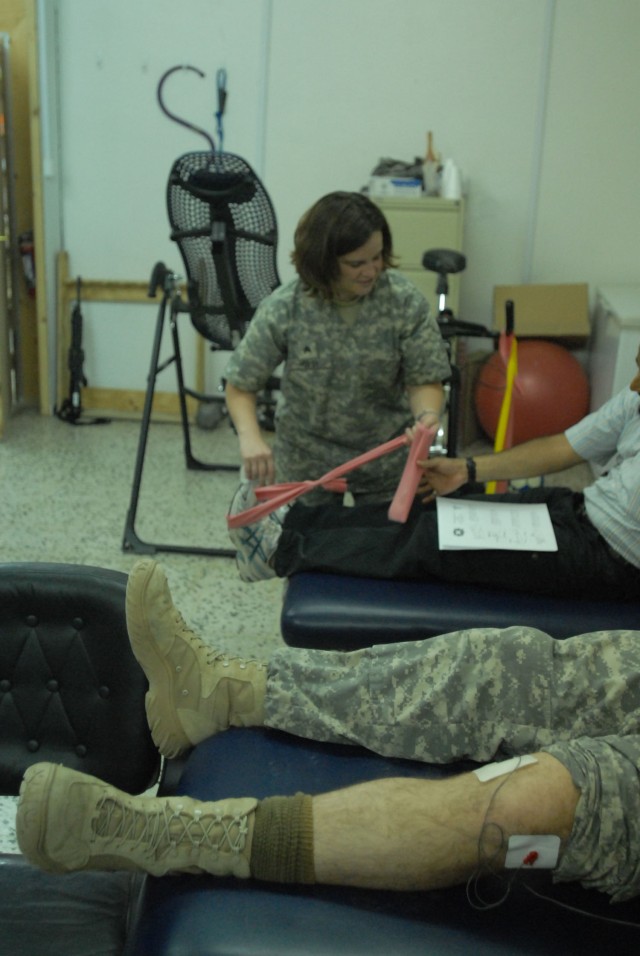
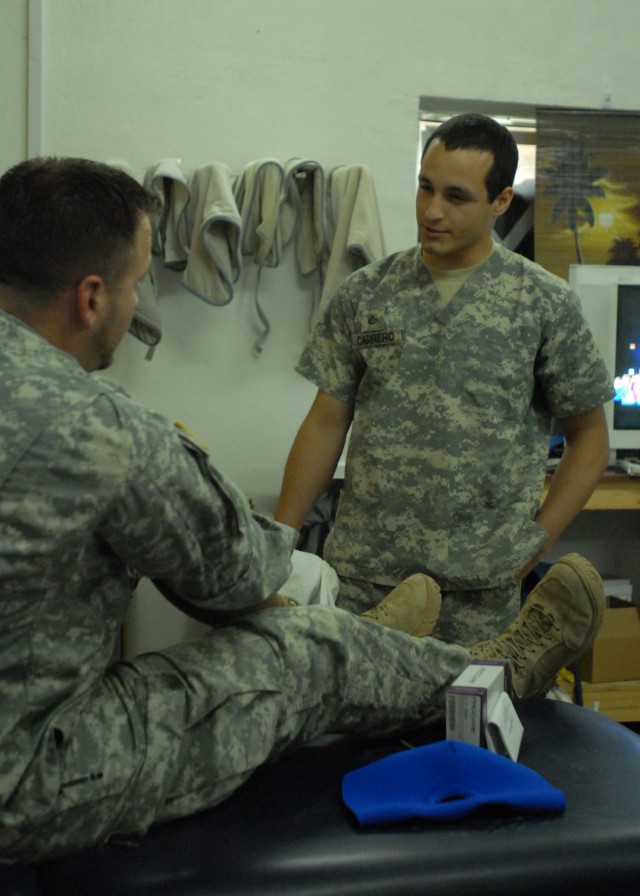
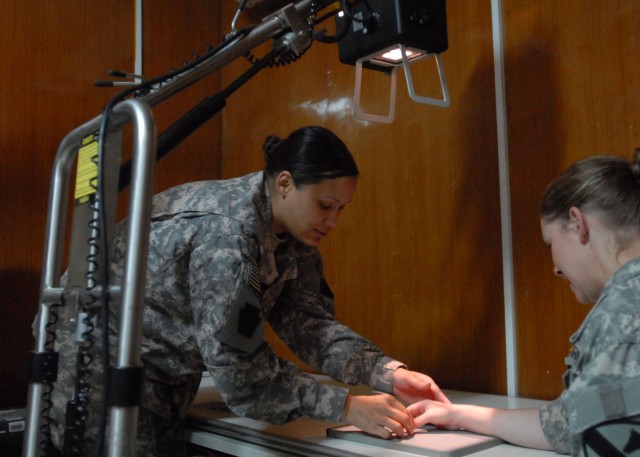
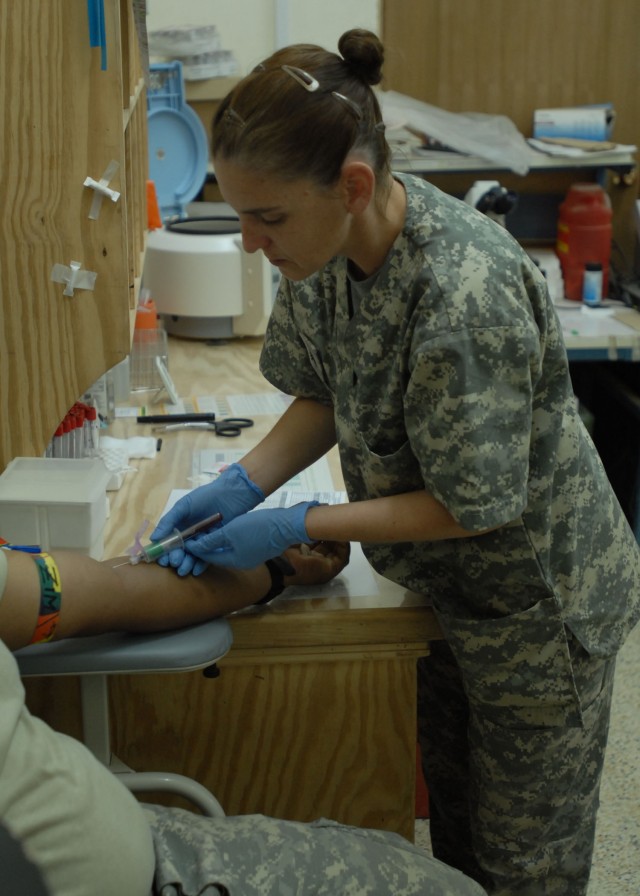
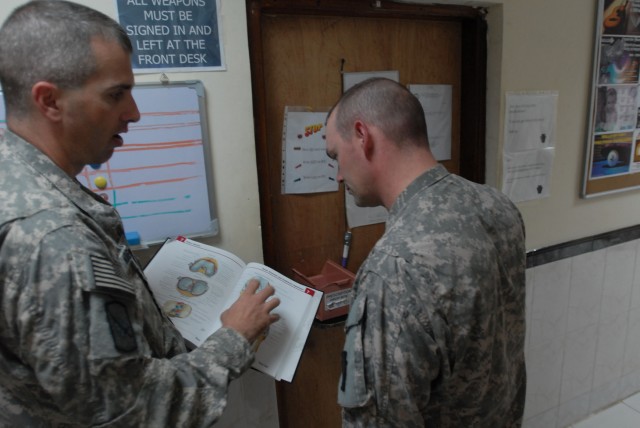
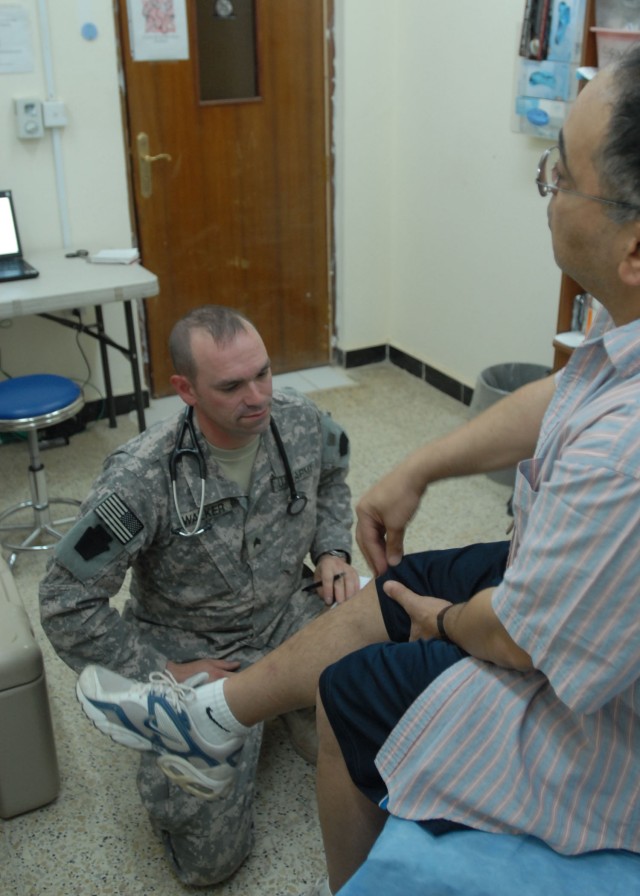

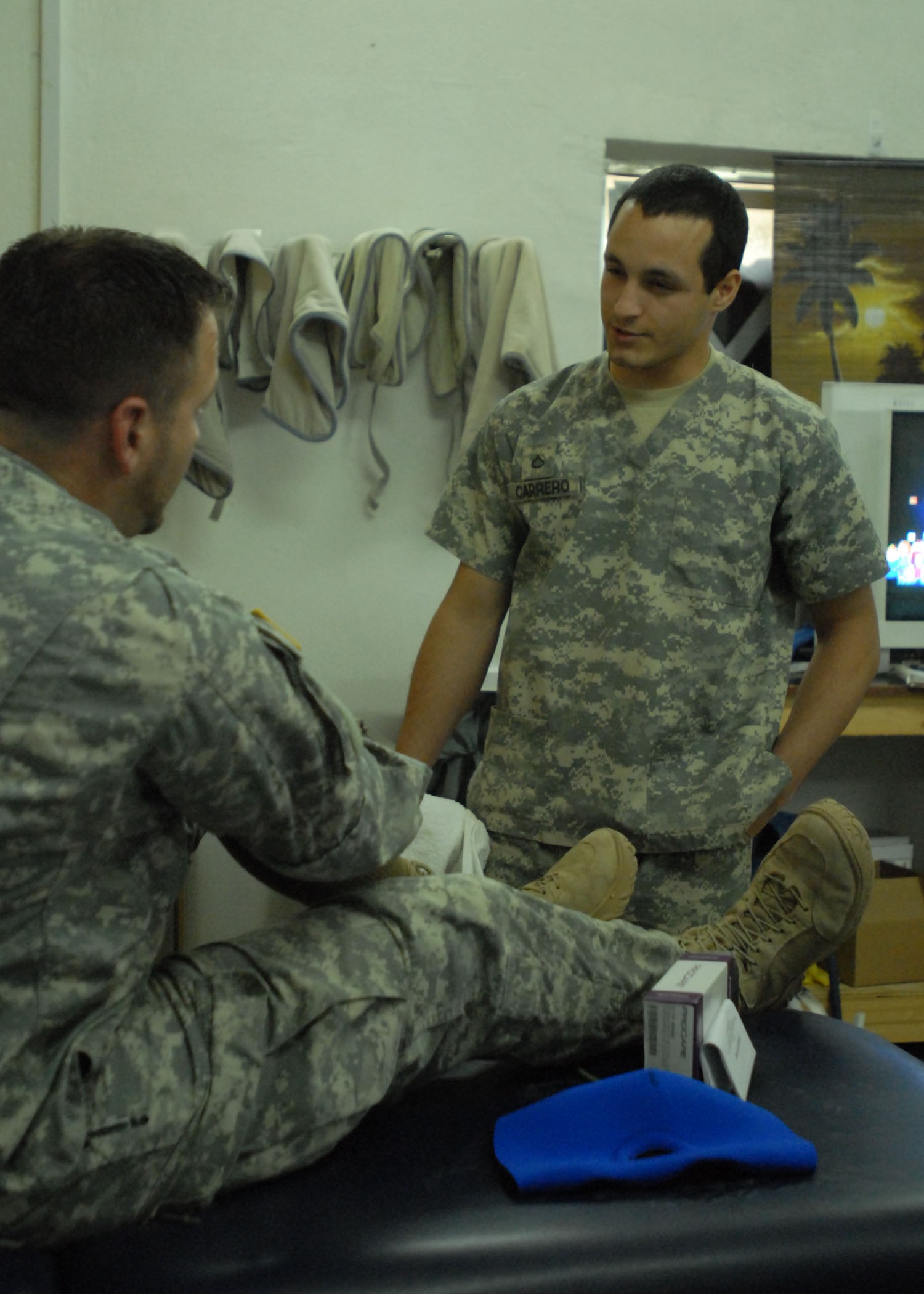
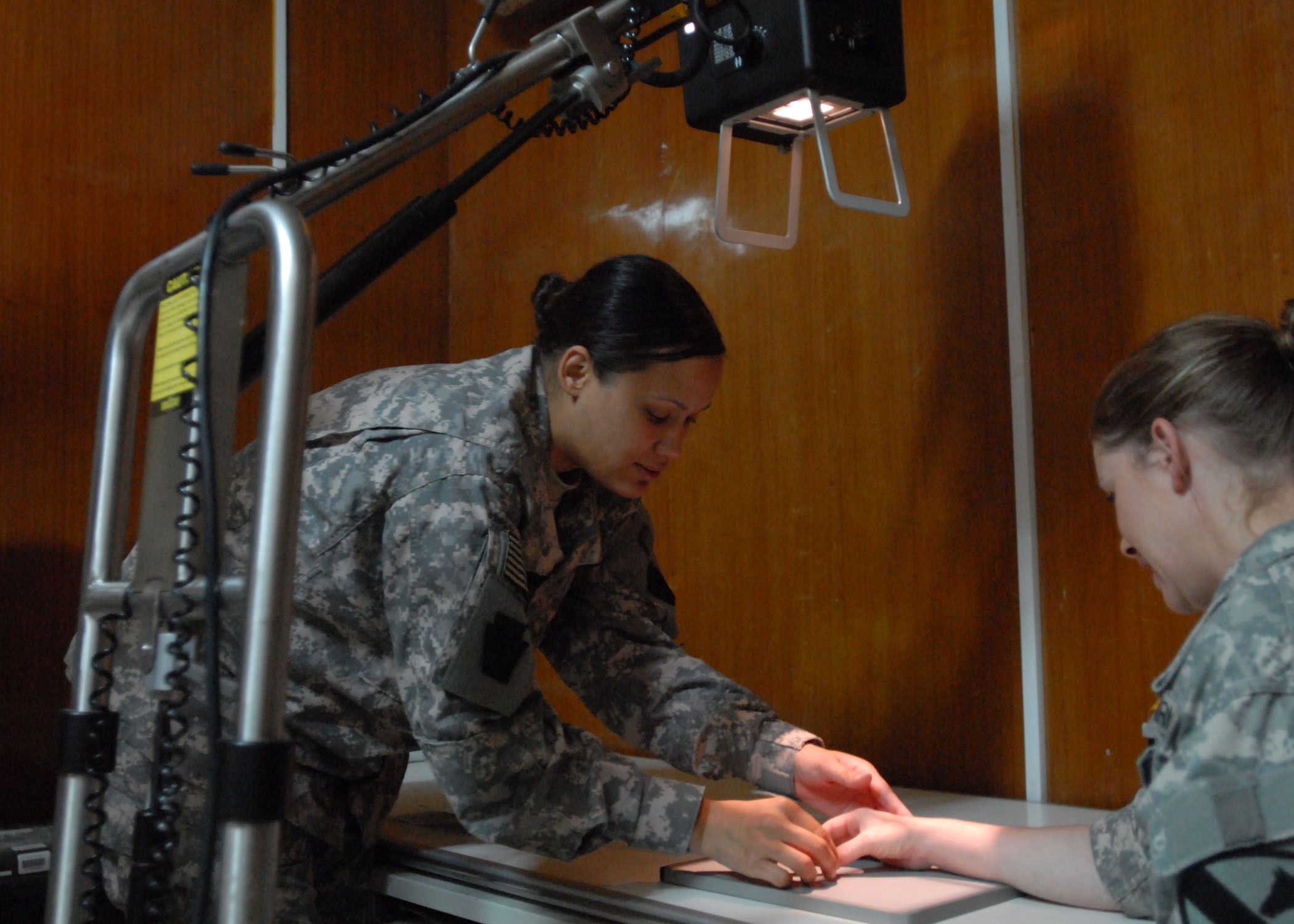
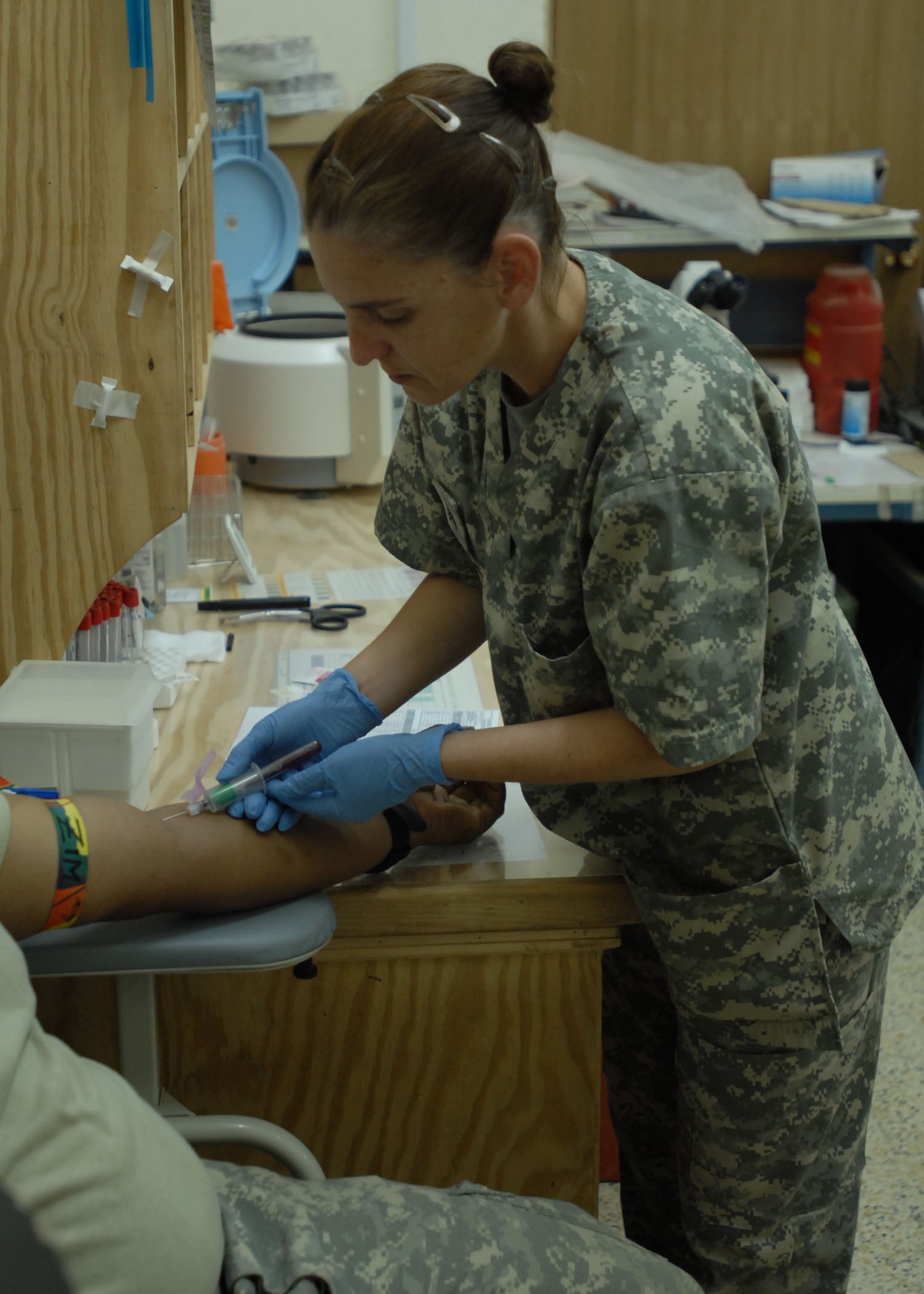
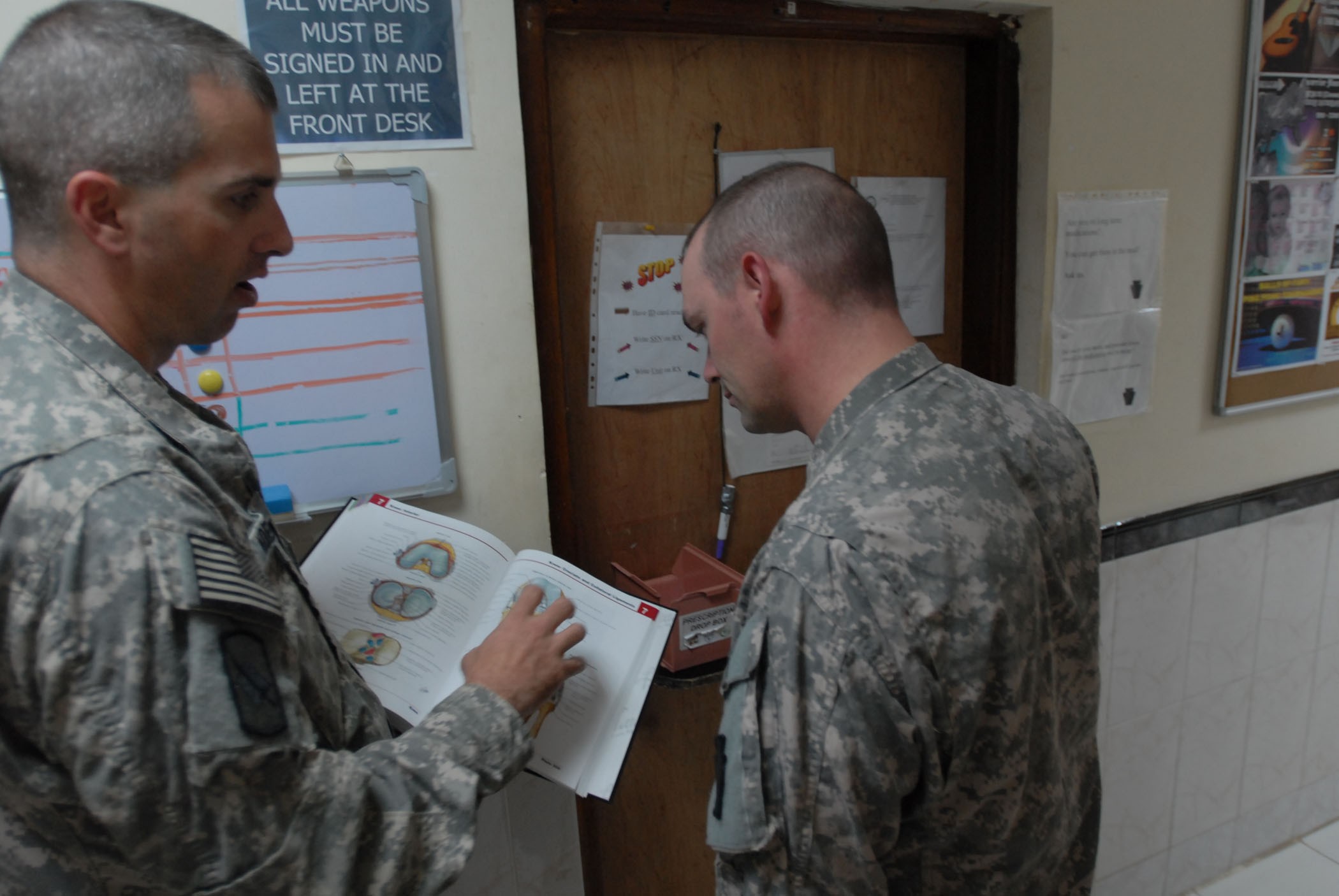
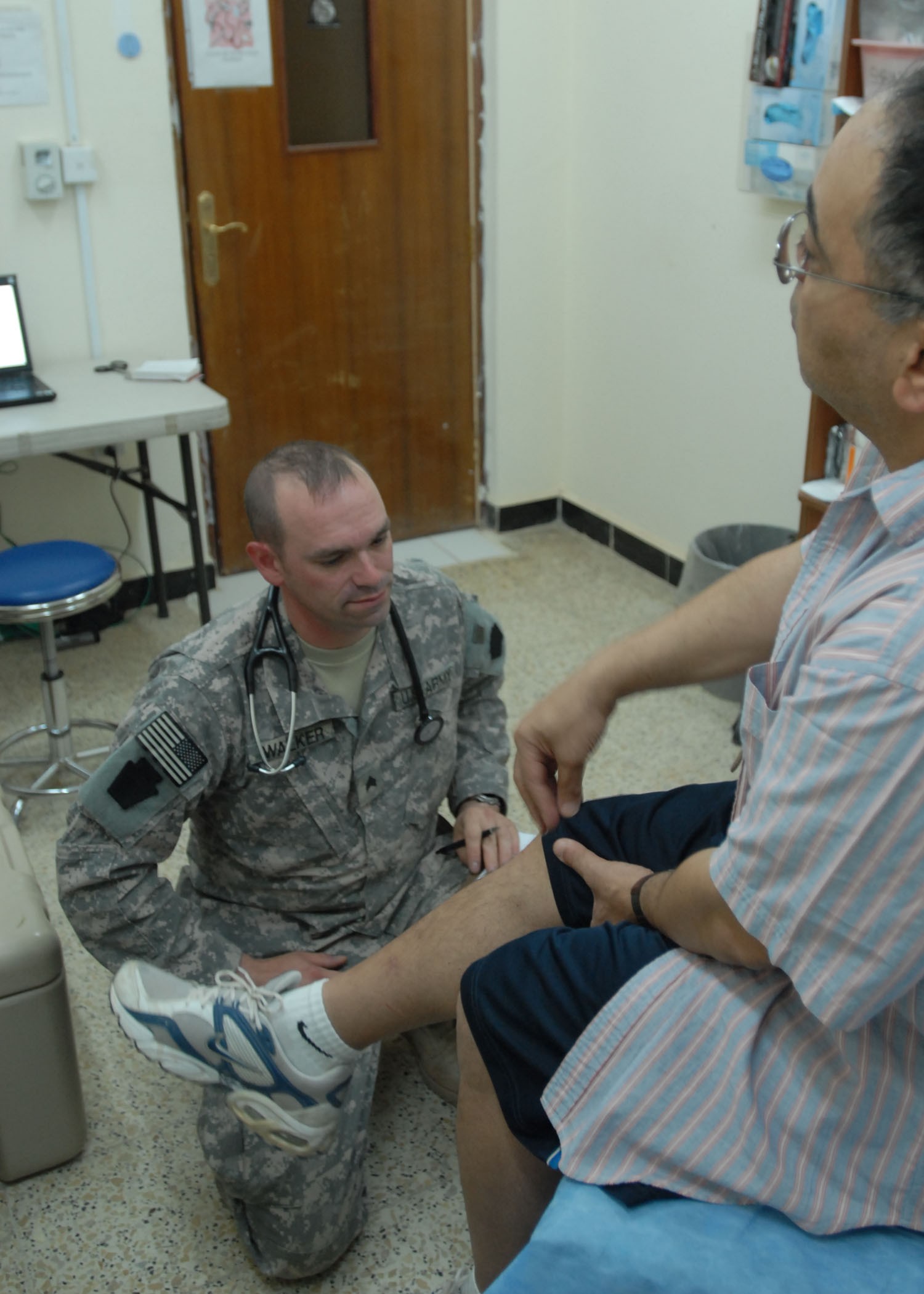
Social Sharing